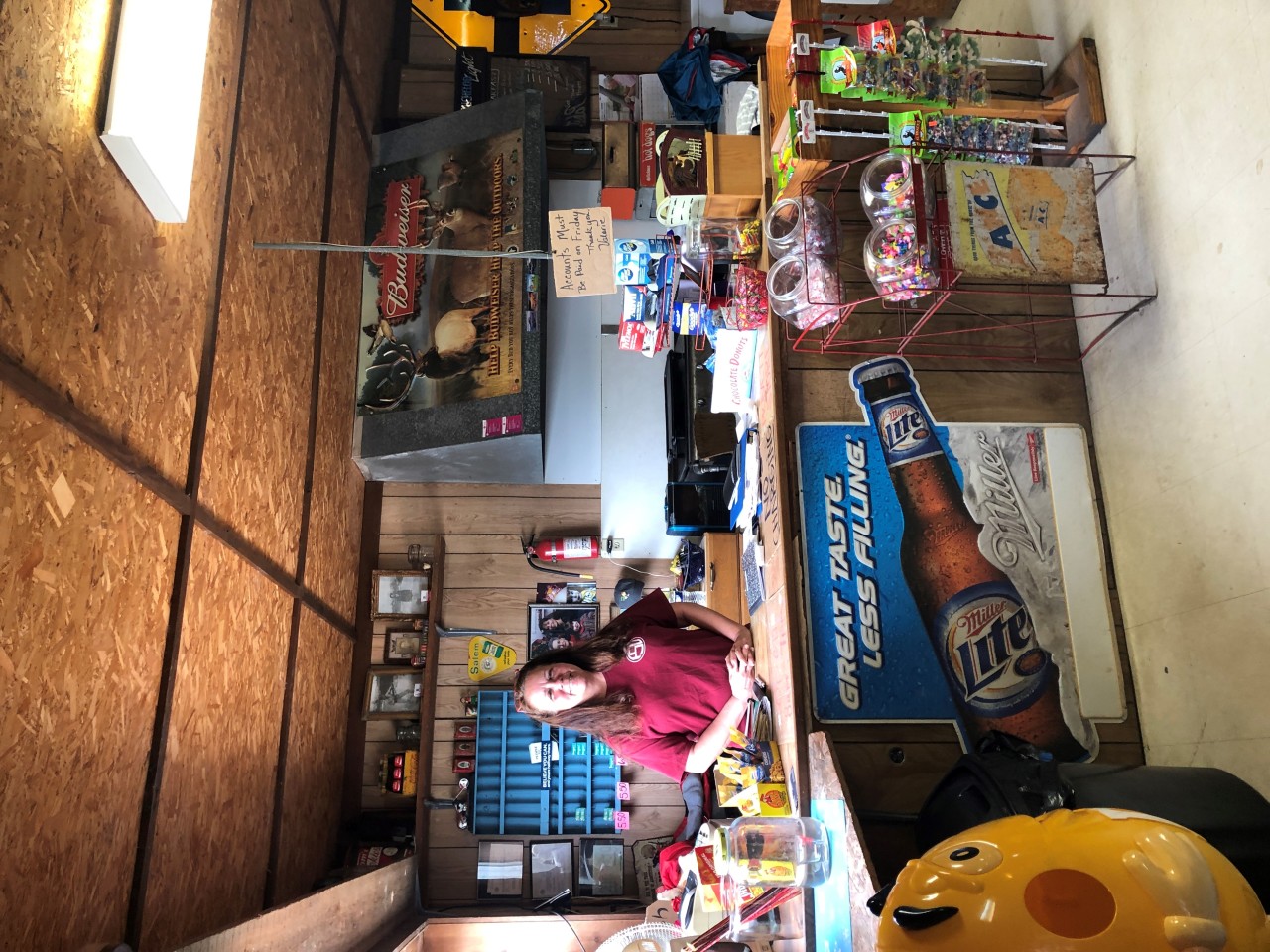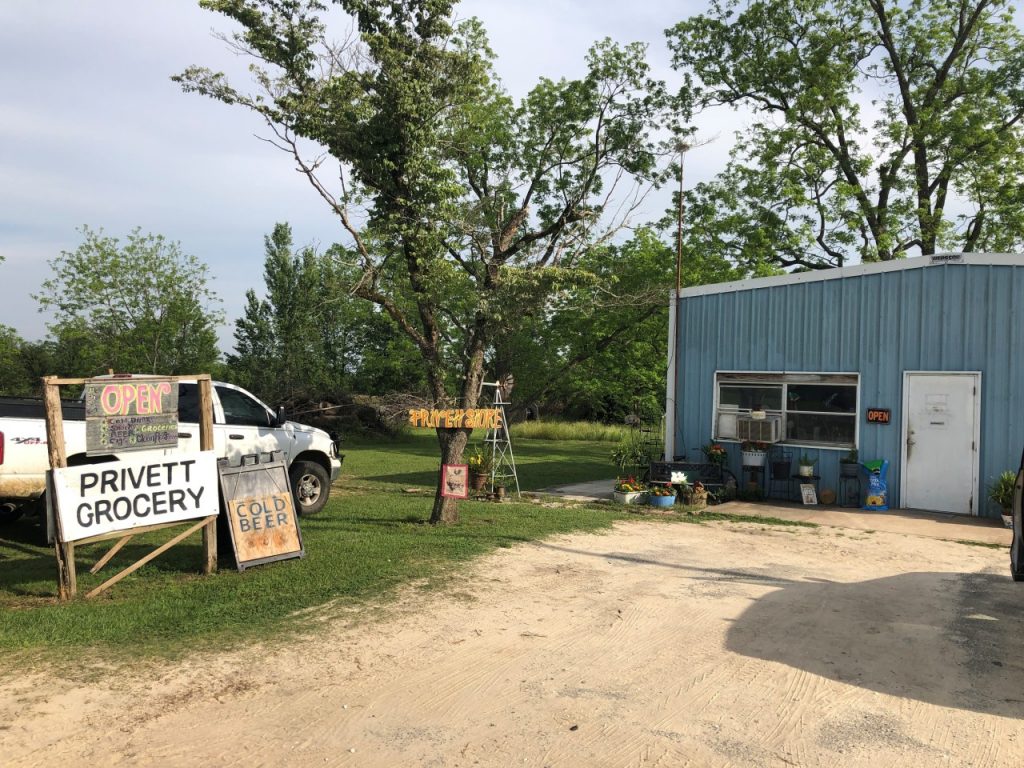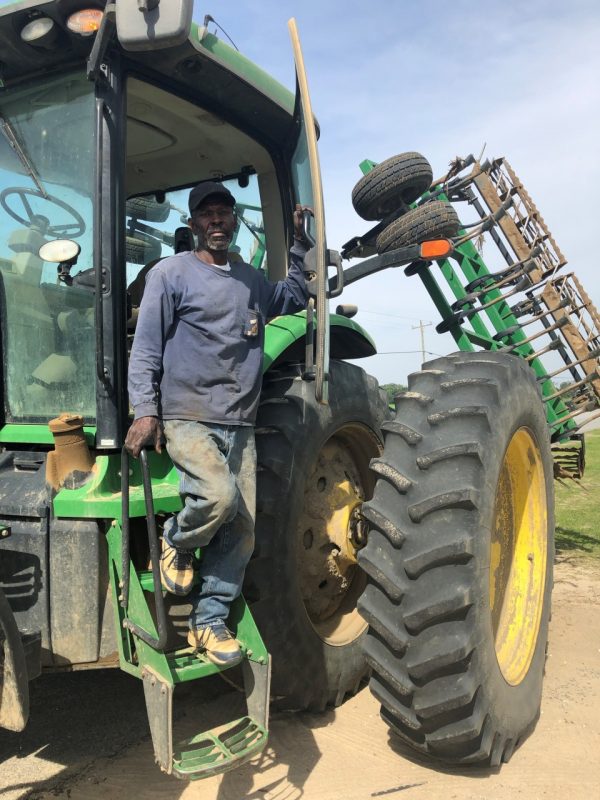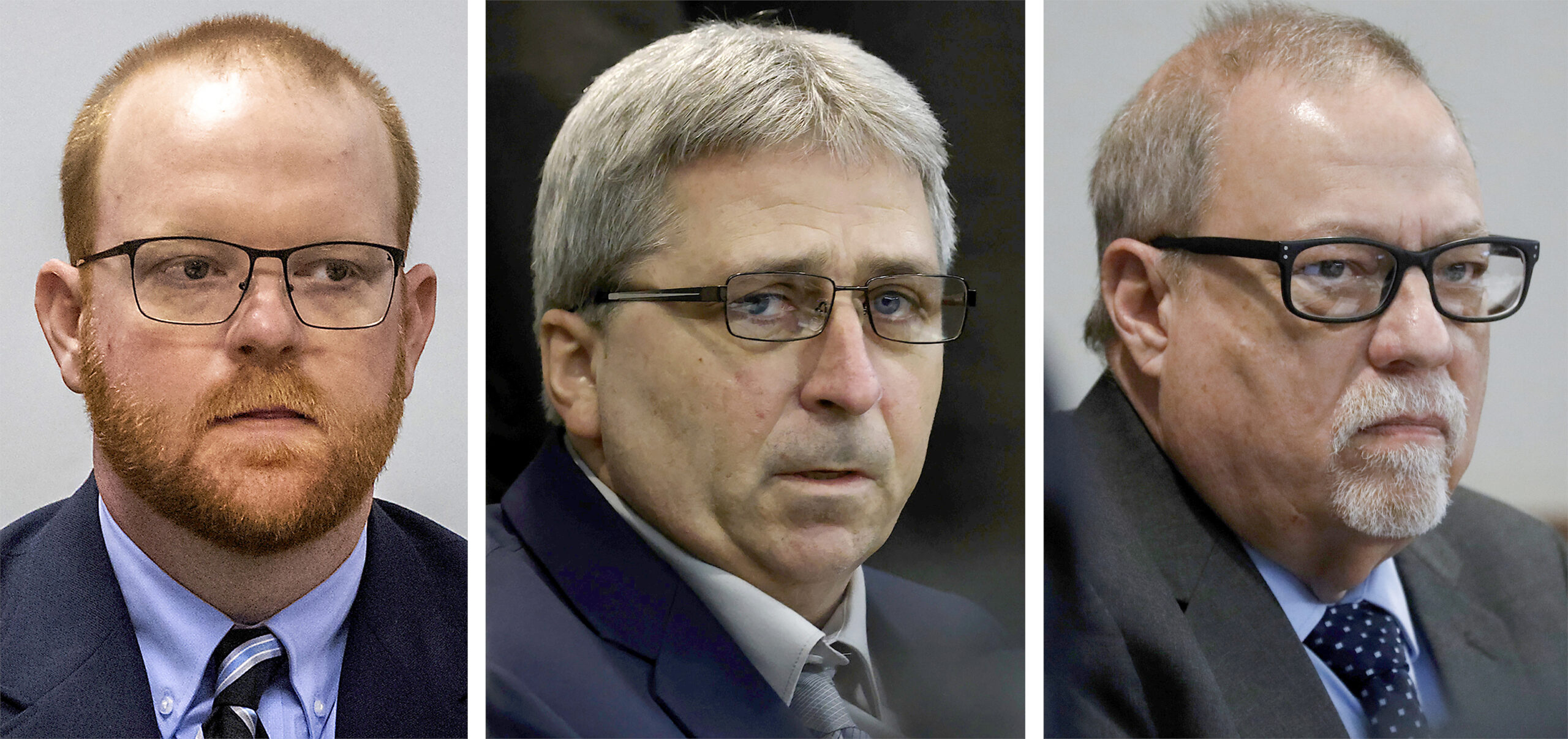For Southwest Georgians, Stalled Federal Aid Affects Everyone

Valorie Cook owns Privett Store in Colquitt, Georgia.
Emma Hurt / WABE
This week a group of Southeastern Senators, including Georgia’s renewed efforts to pass a federal disaster relief package. For months it’s been stalled in a partisan debate over how much money should be included for Puerto Rico.
In Southwest Georgia, farmers have been waiting for the aid since October, when Hurricane Michael devastated the region.
And in an economy driven by agriculture, everyone is affected by the farmers’ struggle.
That includes Valorie Cook, who grew up in Colquitt. Last summer she reopened what had been her parents’ grocery, Privett Store on Ga. Highway 91.

She sells drinks, snacks and groceries, and her clientele is mostly farmers. When they have a good year, she said, so does everyone else.
“When they don’t have income coming in, I don’t have income coming in,” she said. “You know some of my customers do trade with me and charge by the week, and if they didn’t have a paycheck coming in, I didn’t get paid.”
When the hurricane hit, she said, if it weren’t for the tree removal companies who parachuted in for the extra business, she would have had to close up.
Garet Franklin owns a Ford dealership in town, and it’s also clear to him agriculture runs this local economy: “There’s me, the hospital and a huge peanut mill. And that’s the economy here. And the hospital’s full of farmers, I sell to the farmers, and the farmers are what allow the peanut company to exist.”
And the farmers have taken a big hit in Southwest Georgia. Hurricane Michael was a category five storm that brought 150 mile per hour winds and destroyed $2.5 billion worth of crops in the state last fall.
Eric Kimbrel has a 580-acre row crop farm, KFG Farms in Calhoun County, just northeast of Colquitt. He and his business partner, Tony Smith lost about half of their peanut and cotton crops to the storm.
Recovering, Kimbrel said, will be a long road: “I think it’s a 3-5 year process getting out of the hole. That’s if we don’t have another hurricane. That’s if Mother Nature cooperates.”
Kimbrel said in the meantime, the community has pulled together. Both by helping each other remove trees and fix up buildings and by giving each other a break on overdue payments. For example, he sells agriculture products for Nutrien Ag Solutions and has clients who haven’t paid bills yet, just as he’s late paying his bill at the local farm hardware store.
“I just told [the store owner] I said, ‘Look, I appreciate you working with me. It’s been three months since I paid my bill.’ I said, ‘Look I just closed my farm loan last week’,” he said.
And farm loans are really important. Farmers need them to cover their expenses until harvest. And they hardly a harvest last year to pay off their loans.
That’s where the federal aid would come in. Without it, it’s taken months longer for the financial chips to settle and loans to get approved.
Hank Jesture owns Cornerstone Insurance Group in nearby Blakely. Eighty percent of his business is agriculture, and he’s a farmer himself.
“Some of the corn crops are probably 20 days later than we like. And every day we’re late affects the yield in the fall and affects income for 2019,” he said.
He’s just now wrapping up loans which would ordinarily be done in January. And every day of delay means a delay on a farmer paying their bills and a delay on someone else getting their income.
“Banks have really had to work hard and want to help. And we’ve been good about it in Southwest Georgia. We’re family down here,” he said.
Jesture thinks about the stalled disaster relief package every day. “There’ll be some folks who will not farm because the disaster package has not passed,” he said.
And many others, he said, are on vulnerable financial footing now since they’ve had to take on even more debt. The state’s agriculture commissioner Gary Black has called the situation “generational damage.”
Georgia has already lost its top pecan-producing state status to New Mexico, with no quick way to get it back. Pecan trees take a decade to mature.
Steve Singletary is chairman of the Bank of Early in Blakely and runs his family’s farm too. He said if there’s not a good crop this year, it’ll get even worse.
“Everybody’s tied to agriculture. Now that may not be your business but that’s what’s furnishing the money flowing around town, is agriculture,” he said. “And when it’s hurt, everybody hurts.”

For Kimbrel, the stress is already taking its toll: “The Lord don’t put nothing on us we can’t handle. Not supposed to anyway. But now he tested us this year. We were pushed to the limits whether it was marriage, farming, your family, anything. I think we were pushed to the limit. And I think stress-wise, I’m as stressed as I’ve ever been.”
In this community right now, it’s hard to ask about the hurricane without the conversation turning to God.
Jimmy Rainey stopped by the Privett Store in Colquitt on his tractor. He grew up here and works on a farm nearby. “We all pulling through it. It’s all we can do,” he said. “Only thing we can do is put our trust in God to help us out. He’s there for us. He’s never going to let us down or nothing.”
At the Tuesday press conference, Georgia Sen. Johnny Isakson said, “We’re not here to talk about a hurricane. We’re not here to talk about a storm. We’re not here talking about a fire. We’re talking about a disastrous failure of the United States government to respond to the needs of its people.”
Sen. David Perdue suggested Congress stay in Washington, not even leave for a weekend until the package is passed.








